Think of this as Volume 12, Number 5 of A-Clue.com, the online newsletter I've written since 1997. Enjoy.
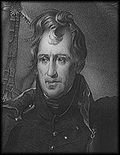
Real political transformation consists of defining the center and causing everyone else to realign around that center.
A keen understanding of this point is what makes a President a truly transformative leader.
Consider the history of the last thesis, what I call the Nixon Thesis of Conflict. Richard Nixon defined that Thesis, and injected the poison of his paranoia into it. But it was Ronald Reagan who validated it, by defining his own views as the political center and forcing Democrats to lean against that assumption.
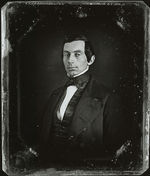
This, and not some greater conspiracy, is the real source of the bitterness felt by what has come to be called the Netroots. Of which I am a card-carrying member by the way.
People like Howard Dean resented being considered "leftist" because in pre-Reagan terms they were not. Dean was for balanced budgets, for simple conservation, for efficiency, and for a foreign policy Arthur Vanderberg would have recognized.
But protest doesn't work, it does not transform. What transforms is leadership:
- Through organization, as Andrew Jackson practiced it.
- Through words, as Abraham Lincoln practiced it.
- Through personal example, as Theodore Roosevelt practiced it.
- Through actions and calls to unity, as Franklin Roosevelt practiced it.
Reaganism was a synthesis of all these things. He was a master of using a relatively new medium, television, to turn what had been considered right-wing kant into a new American consensus we have lived under from that day to this.
President Obama, to his credit, has studied and intuited all this history. He is already demonstrating how transformation is possible even in the face of cynicism, paranoia, and ideology.
Welcome to the new era. Welcome to the Obama Thesis of Consensus.
Let's take a look inside and see how it works.
The best place to start lies in the current debate over health reform.
On the surface, President Obama has not touched the health care system. Yet.
Paul Krugman is very upset about this. It's OK that he's upset. He's an economist, not a political scientist. He's an activist, not a decision-maker.
In fact President Obama has already done more to transform health care in 10 days than Bill Clinton did in 8 years.
- Nearly one dollar in every five on the stimulus package is going to health care.
- The health IT component will lead to standards, boost open source and give the profession much better data on which to make decisions.
- Next week the President will sign an expansion of SCHIP, health insurance for children, costing nearly $33 billion (over and beyond the stimulus) that virtually eliminates income caps.
The total impact of all this is to give the U.S. government a lot more control over the nation's health care budget. We're not just paying, as taxpayers, for services to veterans, the aged and the poor. By this time next week tens of millions of middle-class families will be in line for government-funded health care.
The center of the debate has shifted irrevocably. The government has been given the whip hand in defining what should be done, through control of the dollars needed to make things happen.
And remember this is just step one. Once the stimulus bill is passed, perhaps in as little as two weeks, the President and HHS Secretary Daschle will begin laying the groundwork for universal access to health care, with definitions of care created by the government.
Those definitions are likely to involve a lot more primary and preventive care, a system of carrots and sticks to enforce compliance with doctors' orders, and the beginning of a long-overdue national debate over what's "basic" health care and what's "extra" care people should really be paying for themselves.
In reaction to this Republicans can only splutter like Erskine Sanford in Citizen Kane. By voting no on the stimulus, House Republicans made themselves irrelevant to the debate's future, and emboldened Democrats as they haven't been before. The arguments against health IT, which really will be transformative since it will base future care on what we know works (rather than what a doctor's gut tells him or her) come off as disingenuous Luddism.
See the transformation? A few months ago Majority Leader Harry Reid was like a whipped dog before Republicans. Now he can roll them, and has to catch up with the rest of his caucus.
There is much to be done once the policy is set. Some sound priorities are coming from the profession. Emphasizing prevention and first doing what data says works will not eliminate health care inflation. Nothing really can. But it will put our costs in line with those of other countries, and align our debate with that of other countries as well.
That's true transformation.
This is just one example of how President Obama is re-defining the political center, standing in it, and forcing the political planets to re-align around him. He has studied history, he knows how to play the part, and he still gets in his morning workout (so he will continue to look mahvelous).
Certainly the pace of change will slow eventually, but by the time it slows we will live in a different world, a transformed world, with different definitions of left and right, of fair and unfair political tactics, and of relationships between the governing and the governed.
I have never before, in my lifetime, had a President I could instinctively trust, and unequivocally support. I know that people on the left will constantly be prodding him to do more, and those on the right will have to spend much time in the wilderness before they can even respond.
But the political center of America has been redefined, in just 10 days. By leadership that understands history, uses technology, and knows how a consensus is built.
Welcome to the future.


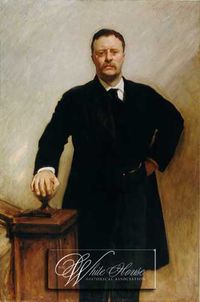
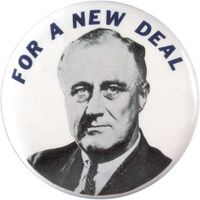

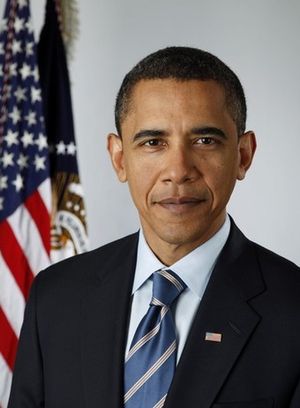









perfect… that is what i was looking for… thanks for sharing. keep it up
perfect… that is what i was looking for… thanks for sharing. keep it up
18 inch doll furniture
Dana Blankenhorn: The Obama Thesis of Consensus